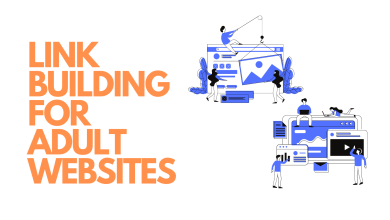How Family Literacy Help Parents Get Involved In Their Children’s Education

Do you know children with a literacy environment at home develop better reading and writing skills? Family literacy is imperative today; it creates a foundation for a child’s at-home learning experience and increases a sense of confidence and independence in adults. Community-based learning through family literacy programs is not solely limited to literature but also includes many interactive activities suitable for people of all ages, making learning fun for everyone, from toddlers to aging adults.
Literacy is beneficial in an individual household and a community as it encourages open communication with family members and others across all levels of education and income. Many parents with limited income look for community schools where their children can learn basic literacy skills, like reading and writing. But with family literacy programs, they can also learn and become independent.
Learning with family literacy programs is not challenging as it’s as simple as learning from a picture book. It involves a diverse range of skills, from literacy skills, such as reading and writing, to critical thinking and problem solving, which spark curiosity, build confidence, and motivate to learn. Adult learning also allows parents to participate actively in their children’s education. They can help their children achieve academic goals and maintain open communication with them or their teachers by getting involved.
Parents’ involvement in their children’s education can benefit them in many ways:
Motivation
When elders at home speak highly of education, it transfers to how young children perceive school. Students with families involved in education tend to be motivated to enroll in advanced learning courses and prepare for higher education. Parents’ and caregivers’ involvement in opportunities and resources available for children creates a positive environment that encourages them to seek and develop strong skills.
Academic success
Students with parents involved in education demonstrate higher achievement in school, regardless of their socioeconomic status and racial background. Parents who learn with family literacy programs often become an example, encouraging their little ones to complete their homework, score high in state assessments, and achieve higher GPAs.
Better behavior
A family that learns together fosters a positive attitude toward learning and education, leading to better behavior in classroom settings. As reading becomes a part of family time, the bond between parents and children becomes stronger. When children are open to their parents, they are less likely to have disciplinary actions, like suspensions and detentions, taken against them due to misbehavior and mischievous activities for attention.
Family literacy programs’ community-based learning benefits parents in plenty of ways:
Parenting
Parents learn parenting skills in countless ways—while some observe others, others read from books and parenting programs. It doesn’t matter where you learn parenting skills; what truly matters is that you engage in continuous learning. Parents-child activities in literacy programs encourage children and adults to be active participants, maintaining open communication and acknowledging each other’s aspirations.
Reading
Regardless of how old an individual is, reading is an essential skill. Children who learn to read in early childhood are more likely to continue reading in later years, gaining knowledge and developing skills over time. Adults who can read effectively feel confident and independent, as the skill is imperative in many situations, for instance, checking medical prescriptions. Parents who engage their children in reading practices open doors of opportunities for their young ones as the habit benefits growth and development.
Writing
Adults feel motivated to write once they learn to read. Family literacy programs encourage parents to maintain a journal to articulate their thoughts, develop self-awareness and reduce stress. Children who follow in their parent’s footsteps learn to communicate their thoughts and express their emotions through writing.
A family that learns and grows together contributes to the community by helping others. Family literacy programs that offer community-based learning create a healthy and nurturing environment for adults and children.



